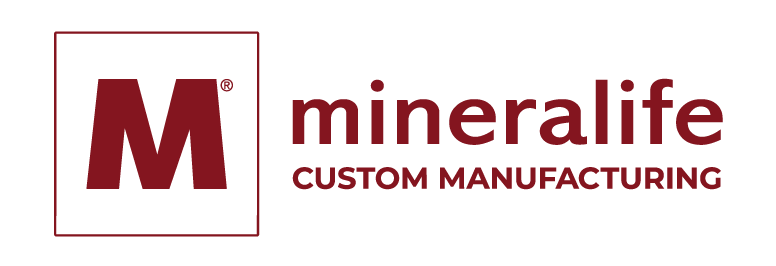GMP and cGMP Contract manufacturing is a form of outsourcing. It is an agreement between a manufacturer and company to make products, or product components, on an agreeable, predetermined timeline.
After the contract manufacturer completes their manufacturing portion, the outsourcing company will use the product in their own manufacturing. If the contract manufacturer is wholly producing the product for the outsourcing company, they will return the completed product.
If you choose to outsource supplement production within your business, ensure that you partner with accredited manufacturers that value product control. Seek out cGMP certified facilities to guarantee product legitimacy and quality.
Contract Manufacturing Regulations
The Food and Drug administration enforces regulations. All reputable nutraceutical manufacturers abide by the set regulations to ensure proper monitoring, control and production measures are taken within the facility. If you are looking for a contract manufacturer that abides by FDA regulations, seek out GMP or cGMP certified facilities.
What is GMP?
GMP stands for Good Manufacturing Practices. GMP certifications require nutraceutical manufacturers take proactive steps that guarantee product contents, safety and quality. These regulations function to prevent cross-contamination, labeling errors and other sources of product error. Strict regulations support consumer safety and experiences.
What is cGMP?
cGMP stands for current Good Manufacturing Practices. As with GMP, these practices ensure proper monitoring, control and production measures are taken within the facility. Current Good Manufacturing Practice certification ensures product legitimacy and quality. Beyond the scope of standard GMPs, certified cGMP facilities must incorporate modern technologies that comply with evolving FDA regulations.
The goal: manufacturer the highest quality supplements through continual improvement.
GMP V. cGMP
The two regulation standards function similarly. Each ensure product control by preventing contamination errors, labeling errors and other sources of product corruption. Both manufacturing models create guidelines around the following scopes:
- Cleanliness
- Complaints
- Documentation
- Equipment
- Inspections
- Qualification
- Record Keeping
- Sanitation
However, the two differ in standards and cost.
Standards
- GMP ensure product control meets the minimum nutraceutical industry standard
- cGMP ensures product control meets, exceeds and evolves with changing FDA standards
Cost
- GMP evolves slowly and meets industry standards with less expensive technologies
- cGMP requires additional testing and expensive technologies that quickly evolve
Both regulations ensure product legitimacy and support consumer safety. cGMP requires greater investment. But it allows manufacturers to abide by continually evolving industry regulations and standards.
Is cGMP Certification Important?
In short…YES!
When dealing with nutraceuticals, cGMP certification is crucial. It ensures the quality and efficacy of supplements—preventing contaminated and adulterated supplements from entering the market, promoting user safety.
If you choose to outsource supplement production within your business, ensure that you partner with accredited manufacturers that value product control. Seek out cGMP certified facilities to guarantee product legitimacy and quality.
